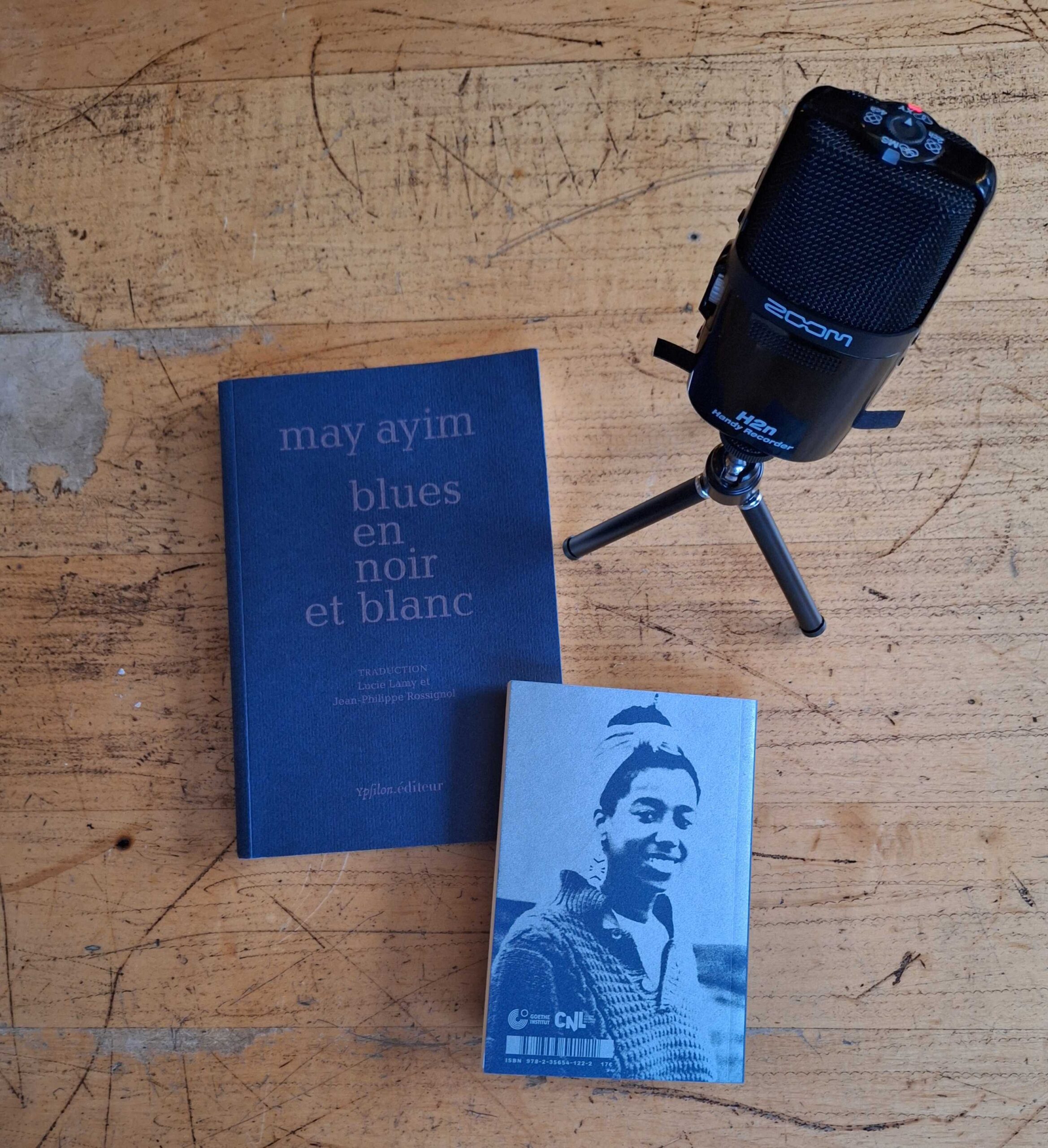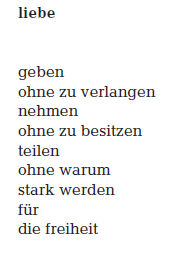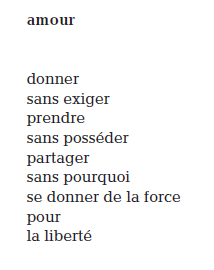
From Text Choice to the Individual Word – the Political Decisions of a Translator
Anna von Rath and Justine Coquel in Conversation with Lucie Lamy
“Among all of the texts that could be translated, I needed a sense of direction. I think this has strongly influenced my approach to translation – the idea that a translator doesn’t just translate, but also acts as an intermediary,” Lucie Lamy explains to us as we meet to chat with her in a café in Berlin. Every book that the social sciences scholar and literature translator Lamy has so far translated has been pitched to a publisher by the translator herself. She translates literature, but in her text choice she also recognises a political dimension – in her search for exciting literary projects she also gives thought to the likes of the representation of marginalised voices. As such, it is hardly surprising that Lamy is interested in the books of the influencial afrodeutsch (Afro-German) poet and activist May Ayim. Together with the writer Jean-Philippe Rossignol, Lamy has translated the poetry collection blues in schwarz weiß and the essay collection Grenzenlos und Unverschämt into French. The books were published by the Ypsilon publishing house with the titles blues en noir et blanc and Nouveau Départ. Lamy emphasises how “suggesting texts directly to publishers always means a lot of unpaid preparatory work, and so you have to love the texts and feel that it is necessary to translate them”.
May Ayim explicitly wrote political texts. According to Lamy, it is precisely for this reason that Ayim’s books are an exciting prospect for a French audience: in relation to racism and sexism there are many parallels between Germany and France. “The structures that May Ayim analyses or observes ironically – there is a lot of humour in her poetry – have a resemblance to those in France.” What Ayim wrote in the 1990s is still relevant today. As a politicised person, Lamy feels that the texts speak to her – from their form to their contents and language.
Lamy tells us that she has always had a sense for the political dimensions of language in particular: “I am a woman and in France there is a generic masculine form that is even more prominent than it is in German. Even before I had read feminist theory, it was clear to me that it is a problem and a linguistic challenge. Because of this I developed a sensibility, also for the issues that personally affect me less.” Lamy is interested in a linguistic expression that can give justice to human diversity. The naming of things is a constant problem. Lamy questions: “How can I continue to make myself understood without essentializing? How can I ensure precision without becoming too cumbersome?” Language creates reality. As such, on the one hand it contributes to unjust conditions and on the other hand it is able to call them into question. In her work, May Ayim endeavoured to do the latter, which was a central challenge in the French translation.
There was an intensive exchange between Lamy, her co-translator Rossignol, the copy editor from Ypsilon and Raphaëlle Efoui-Delplanque, who provided a kind of sensitivity reading in the form of holding a conversation about sensitive terminology with the two translators. To underpin their terminology decisions, Lamy and Rossignol also did considerable research in the university archive at the Free University of Berlin. There is a stand of May Ayim’s work at the archive; older versions of her publications as well as correspondence between Ayim and her publisher. May Ayim often chooses gender-inclusive phrasing with Binnen-I (a German spelling method used to create gender-neutral wording) the way it was done in the 1990s, and writes Black with a capital ‘B’ when she uses the term as a political designation for people. These writing styles are particularly noticeable in her poems, as she otherwise opts to forgo the use of capital letters. “Because of this it was very important to us to maintain this method. In the French translation we gendered words using a capital ‘E’, which in French is rather unusual. In French, gendering is more often done using a period. However, we thought that the way Ayim chooses to write is an important element of her poetry and so we carried it through. Most of all, because poetry also functions visually. The way the text appears on the page is extremely important.” As Lamy and Rossignol orientate themselves so strongly on the original writing style of Ayim’s poetry, in some cases this resulted in new word creations.


Now and again Ayim uses gender-neutral language – “especially in love poems”, notes Lamy. In French, it’s almost impossible to find gender-neutral phrasing. With regard to this, Lamy tells us how she and Rossignol tried out various possibilities in their translation before settling on their final version: first they tried using gendered variations, but Lamy self-critically ascertains that “this changes the reading experience too much.” As they intentionally wanted to stay away from the generic masculine form, they ultimately changed the phrasing of the text more strongly, to reach gender-free solutions:


Due to their form, essays offer other possibilities, yet even so there were challenges here too. Ayim’s essay “Die Afrodeutsche Minderheit” (The Afro-German Minority) was first published in an encyclopaedia about minorities in Germany in 1995, although she had already written the text in 1992 for university students. In this informally circulated first version she used the Binnen-I and wrote Black with a capital letter, as she did in her poetry. But, in the official publication of the revised text in a university press these formulations no longer appear. It is also notable that in this version she opted to use gender-neutral wording more often, such as afrikanische Menschen (African people) rather than AfrikanerInnen (Africans – using Binnen-I). Lamy explains: “We couldn’t find any correspondence between her and the publishers, but it is very apparent that she initially wrote in her own style and then had to conform to the publication guidelines.” In 2021 there was a new [German] publication of Ayim’s essays by Unrast Publishing House, in which gendering is used once again. This renewed amendment, which was undertaken by the Publishing House after Ayim’s death, is not explained. During the translation, Lamy and Rossignol stayed true to the first publication of the text. They also described/explained the text’s developmental history in a long footnote. In this way, they could document the process of standardisation of the text, which reveals a lot about the research institutions of the time. “But of course it’s frustrating, because now it says ‘les Afro-Allemands’ everywhere, which actually means Afrodeutsche Männer (Afro-German men)” Lamy comments.
In both the poetry collection and the essay collection, Lamy and Rossignol chose not to opt for consistent solutions to be implemented throughout the translation. They chose different options on a case-by-case basis, and they have good reasoning for all of these decisions. From the text selection which she pitches to a publisher through to each individual word, Lamy’s translation practice is political.
Anna von Rath and Justine Coquel chatted with Lucie Lamy within the framework of the Resonance program oganized by the Goethe-Institutes in France.
